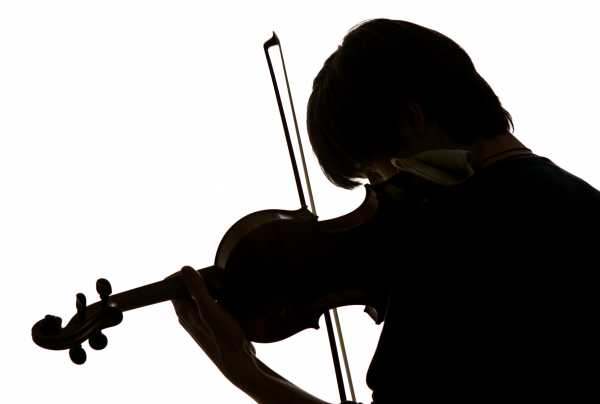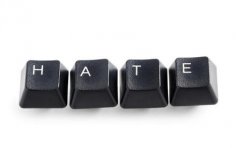
Covering psychology the past several years, I’ve grown used to reading about how classic, viral experiments in the field are failing in rigorous retests. It’s often disappointing to read about: Many times the debunked ideas were, ultimately, about helping people become better versions of themselves.
But this time, I feel some relief.
This week, the journal Royal Society Open Science published a replication of an influential 1993 study on violin players at a music school in the journal Psychological Review.
The original finding was simple, and compelling: The very best, expert players — those who were considered elite — were the ones who had practiced the most. The conclusions implied that deliberate practice was the most important ingredient needed to achieve elite status, more important than inborn characteristics like genetics, or personality.
Perhaps you’ve heard of this. The idea was then popularized in the book Outliers by journalist Malcolm Gladwell. He dubbed it the “10,000-hour rule.” “Ten thousand hours is the magic number of greatness,” Gladwell wrote, drawing on anecdotes from famous success-havers (like Bill Gates and the Beatles), but also on the 1993 paper (which according to Google Scholar has been cited more than 9,800 times).
The replication — conducted by Brooke Macnamara and Megha Maitra of Case Western Reserve University — included a somewhat larger sample size and tighter study controls, and was preregistered (meaning that the scientists locked their methods and analysis plans in place before they collected any data, preventing them from retroactively changing their premise to fit their findings).
It finds that practice does matter for performance, but not nearly as much as the original article claimed, and surprisingly, it works differently for elite performers.
“In fact, the majority of the best violinists had accumulated less practice alone than the average amount of the good violinists,” the authors write. Practice still mattered: It accounted for 26 percent of the difference between good violinists and the less accomplished students. But the original study claimed that practice accounted for 48 percent of the difference.
This isn’t exactly a massive revelation. (Also, it’s always been a bit of a stretch to extrapolate findings from a study on violin students to other areas.) Studies have been chipping away at the “10,000-hour rule” for years. (See Slate for a write-up of some of these studies.)
A 2016 meta-analysis — also co-authored by Macnamara — in Perspectives in Psychological Science looked at 33 studies on the relationship between deliberate practice and athletic achievement and found that practice just doesn’t matter that much. More precisely, the analysis found, practice can account for 18 percent of the difference in athletic success. Put another way, if we compare batting averages between two baseball players, the amount of time the players spent in the batting cage would only account for 18 percent of the reason one player’s average is better than the other.
Which isn’t nothing. But it also means that a great many other factors — like genetics, personality, life history, etc. — makes up the majority of the difference. “Almost across the board, practice should improve one’s performance,” Macnamara told me in 2016.
Practice matters, yes. But at the same time, it’s unlikely to bridge the gap between natural superstars and your average player.
Which is why I find these debunkings of the 10,000-hour rule to be a complete relief. Because implied in the rule (at least, to me) is a deeply self-deprecating message: that if we fail to achieve greatness, it’s our own damn fault. And what screw-up would forgo greatness?
The research underscores: we don’t need to hold ourselves to an impossible standard
In 2016, I wrote about that meta-study, reflecting on how I was a poor athlete growing up. I’d spend hours practicing lacrosse but never get any better at it, frustrating myself, parents, and coaches. Could I have practiced even more? Yes. But would have I really caught up to the best players? I doubt it. How much frustration would I have saved by just realizing I wasn’t all that coordinated when it came to sports, and that was okay?
The 10,000-hour rule perpetuates the exhausting idea that we all can, and therefore should, be great at anything we put our minds to. And it can blind us to the joy that can be found in mediocrity. The 10,000-hour rule is compelling in a world that clings to the idea that people rise up through society based on merit. And that’s a myth worth debunking too.
To this day, I am a slow, clumsy hiker. But I love being outdoors. I’m an okay painter. But it’s just nice sometimes to get out a canvas and engage the nonverbal parts of my brain. I find when I free myself from the expectation that I can be great, I can start having fun.
I wish I’d heard more of this growing up.
So let me say it here: If you’re not the smartest, best person in the room, it doesn’t mean you’re useless. (And ironically, the benefits of being the most competent person in a room include being handed more assignments — because, hey, you can handle it.) If you’re bad at sports, you’re still doing your body right by being outside exercising. We ought to be able to enjoy the things we’re not great at and shouldn’t feel pressured to continually do better.
The debunking studies do provide an optimistic takeaway of their own: We can all improve when we put our mind to it, but we don’t have to hold ourselves to an impossible standard.
Sourse: vox.com






